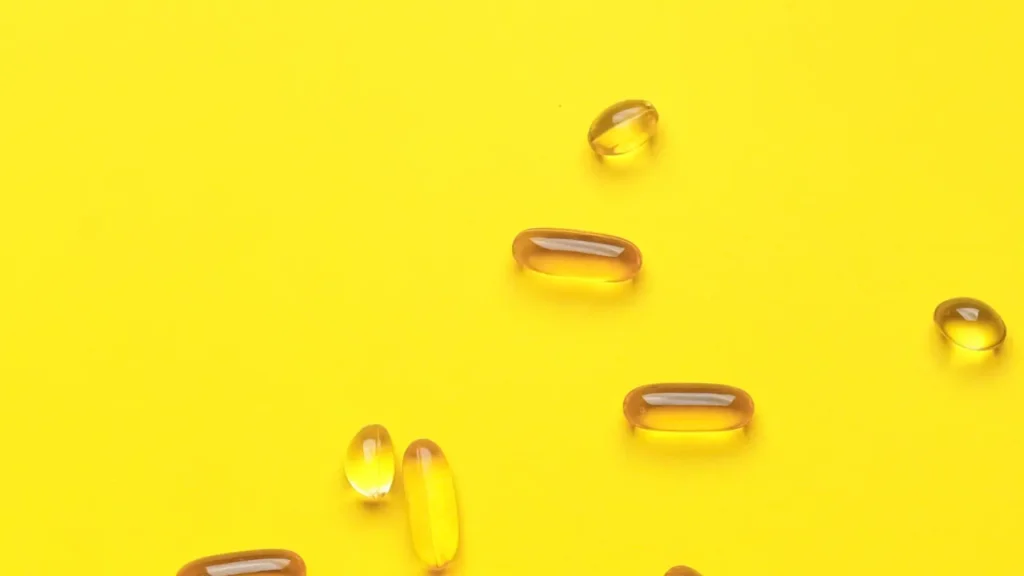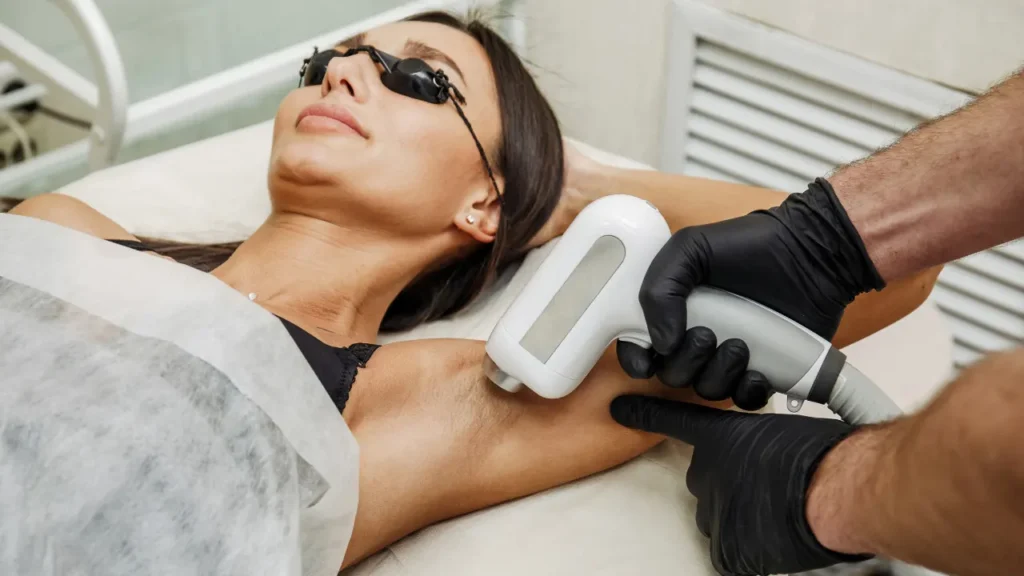Description
Acanthosis nigricans is a skin ailment that is characterized by development of velvety, black patches on the skin. However, they can also appear on the palms, face, and the soles of the feet. These patches are frequently found in skin folds like the armpits, neck, and groin. The patches are often not unpleasant or irritating, although they occasionally thicken and take on a rough texture. Acanthosis nigricans commonly affects those who are overweight or obese, although it can also affect those with diabetes or insulin resistance.
You May Also Like:
TOP 3 MUSHROOMS FOR MEMORY– YOU WILL NEVER FORGET NUMBER ONE
FINDING THE BEST LION’S MANE MUSHROOM SUPPLEMENT: 5 TOP BRANDS REVIEWED
Acanthosis Nigricans: Description, Causes, And Treatment Protocol is an original (HealthXWire) article.
Possible Causes
Acanthosis nigricans may be idiopathic, which means that its cause is unknown, or it may be connected to another illness. Diabetes and obesity are the two underlying diseases that are most frequently linked to acanthosis nigricans. Those who have diabetes and who also have insulin resistance can experience elevated blood insulin levels, which can promote the proliferation of skin cells and cause acanthosis nigricans. Since the skin folds could rub against one another and irritate the skin, obesity can also result in acanthosis nigricans.
Exacerbating and Mitigating Factors
Several factors, like obesity, specific drugs (for example, steroids and oral contraceptives), and hormonal imbalances, can make acanthosis nigricans worse. Acanthosis nigricans can be alleviated by losing weight and resolving underlying medical issues. Additionally, limiting friction and tight clothes in the affected areas might help stop additional skin irritation.

Standard Treatment Protocol/s
Depending on the underlying medical condition that is producing the acanthosis nigricans, different treatments are available. Treatment for acanthosis nigricans is centered on symptom management if it is an idiopathic illness, which means there is no known underlying medical issue. It is possible to enhance the texture of the skin by applying topical therapies like retinoids. Chemical peels, cryotherapy, and laser therapy are some more therapies that can be used.
Treating any underlying medical illnesses is the main objective if acanthosis nigricans are linked to it. Controlling the level of blood sugar through food and medicine, for instance, can help to lessen the symptoms of acanthosis nigricans if the condition is linked to diabetes. Likewise, if obesity and acanthosis nigricans are linked, losing weight might alleviate the illness.
Treatment Options
There are numerous complementary and alternative therapies that are available in addition to standard therapies for acanthosis nigricans. These therapies, which include the following, are supposed to complement standard medical treatment rather than replace it:
Prescription Medications: Prescription medications can be used to treat acanthosis nigricans, especially if it is coexisting with another medical issue. For instance, it has been proven that the medication metformin, which is widely recommended to treat type 2 diabetes, can improve insulin sensitivity and diminish the symptoms and indications of acanthosis nigricans. Furthermore, medications such as topical retinoids, which are generally used for treating acne, may be used to increase the development of acanthosis nigricans by accelerated skin cell turnover.
Over-the-Counter Formulations: Alpha-hydroxy acids (AHAs) and salicylic acid are examples of over-the-counter medications that can help treat acanthosis nigricans. Whereas AHAs can help exfoliate the skin and improve its appearance, salicylic acid can help clear pores and lessen irritation. Nevertheless, these products ought to be used with care as they possess a likelihood of irritating the skin and may not be suitable for all skin types.
Nutritional Supplements: The general health of the skin can be enhanced by nutritional supplements, which can help to lessen the symptoms and indications of acanthosis nigricans, which are as follows:
- Omega-3 Fatty Acids
Omega-3 fatty acids, regarded as essential fatty acids, can be found in abundance in fish, flaxseeds, and walnuts. They have anti-inflammatory properties and the ability to improve insulin sensitivity, which can help with acanthosis nigricans symptoms.
- Vitamin D
Vitamin D is a fat-soluble vitamin that is crucial for the functioning of bones and the immune system. Additionally, it helps to increase insulin sensitivity and control blood sugar levels. Diabetes risk and insulin resistance have both been linked to low vitamin D levels. Supplementing with vitamin D can also help reduce the symptoms and indications of acanthosis nigricans.
- Chromium
Chronium is an essential trace mineral for controlling blood sugar levels. It enhances insulin sensitivity and it helps promote insulin production. Supplementing with chromium can lessen the severe effects of acanthosis nigricans.

Natural Remedies: There are several organic treatments that can help with acanthosis nigricans symptoms. These remedies help in reducing inflammation and enhancing insulin sensitivity and are commonly used as additional therapies to traditional treatments. Some of these therapies are:
- Aloe Vera
Aloe vera is widely known for its therapeutic benefits, and has been used as a plant for ages. It can help reduce the thickness and blackness of the afflicted skin and it possesses anti-inflammatory properties. Aloe vera gel can make the skin look and feel better when it is applied to the affected regions.
- Tea Tree Oil
Tea tree oil is known for having both antibacterial and anti-inflammatory characteristics, making it useful as an essential oil. It can lessen the acanthosis nigricans-related irritation and redness. Like Aloe vera, tea tree oil can also be applied to the affected regions to help reduce redness and irritation.
- Cinnamon
According to several studies, cinnamon increases insulin sensitivity. By enhancing insulin sensitivity, consuming more cinnamon can help lessen the effects of acanthosis nigricans.
- Apple Cider Vinegar
Apple cider vinegar is an all-natural treatment with a variety of medical benefits, and it has been widely used for generations. It can help lessen the thickness and blackness of the afflicted skin due to its anti-inflammatory and antibacterial properties. The texture of the skin can be greatly enhanced by using apple cider vinegar on the troublesome regions.
Herbal Remedies: The signs and effects of acanthosis nigricans have been proven to have the ability to be improved by a number of herbal treatments. Turmeric, for instance, includes curcumin, which possesses antioxidant and anti-inflammatory properties. In some research, it has also been discovered that bitter melon increases insulin sensitivity. It is crucial to remember that herbal medicines could potentially have adverse impacts or interact with pharmaceutical drugs. As a result, it’s always important to get medical advice before using any herbal medicines.
Non-Medical Solutions: Several non-medical alternatives for treating this illness, in addition to prescription drugs, over-the-counter medicines, nutritional supplements, and herbal cures include the following:
- Dietary changes
Improved insulin sensitivity and decreased severity of acanthosis nigricans can both be achieved by maintaining a nutritious diet low in carbohydrates and sugar.
- Weight Loss
Insulin resistance, which is frequently brought on by obesity, is frequently linked to acanthosis nigricans. Reduced insulin resistance and an improvement in the look of acanthosis nigricans are two benefits of weight loss.
- Exercise
Regular physical activity can help enhance insulin sensitivity, lessen insulin resistance, and encourage weight loss, thereby enhancing the properties of acanthosis nigricans.
- Chemical Peels
Acanthosis nigricans might appear improved and exhibit less hyperpigmentation with the aid of chemical peels. These remedies entail putting a chemical solution on the affected region, causing the skin’s outer layer to flake off.
- Cryotherapy
Cryotherapy includes using liquid nitrogen to rapidly freeze the affected region, which can help minimize hyperpigmentation and enhance the visible signs of acanthosis nigricans. This procedure can be uncomfortable and lead to temporary skin discoloration, yet it is typically safe and successful.
- Laser Therapy
Laser therapy uses high-energy light to target the problematic regions and minimize the visible signs of acanthosis nigricans. Although usually successful and safe, this kind of therapy can also be costly.

Conclusion
It is most important to keep in mind that some other underlying medical disorders connected to acanthosis nigricans include hypothyroidism, Cushing’s syndrome, and polycystic ovary syndrome (PCOS). Acanthosis nigricans is connected to PCOS, a hormonal condition that can cause insulin resistance and obesity. Acanthosis nigricans can develop as a result of the overproduction of cortisol that occurs in Cushing’s syndrome. Acanthosis nigricans can be brought on by a condition called hypothyroidism, wherein the thyroid gland cannot produce sufficient levels of the thyroid hormone. Be sure to talk to a doctor or dermatologist before trying any of the supplements and remedies we have provided to you in this article.

Additional resources for further reference
https://www.ncbi.nlm.nih.gov/pmc/articles/PMC4144206/
https://www.healthline.com/health/acanthosis-nigricans
https://www.nhs.uk/conditions/acanthosis-nigricans/
Important Note: The information contained in this article is for general informational purposes only, and should not be construed as health or medical advice, nor is it intended to diagnose, prevent, treat, or cure any disease or health condition. Before embarking on any diet, fitness regimen, or program of nutritional supplementation, it is advisable to consult your healthcare professional in order to determine its safety and probable efficacy in terms of your individual state of health.
Regarding Nutritional Supplements Or Other Non-Prescription Health Products: If any nutritional supplements or other non-prescription health products are mentioned in the foregoing article, any claims or statements made about them have not been evaluated by the U.S. Food and Drug Administration, and such nutritional supplements or other health products are not intended to diagnose, treat, cure, or prevent any disease.


